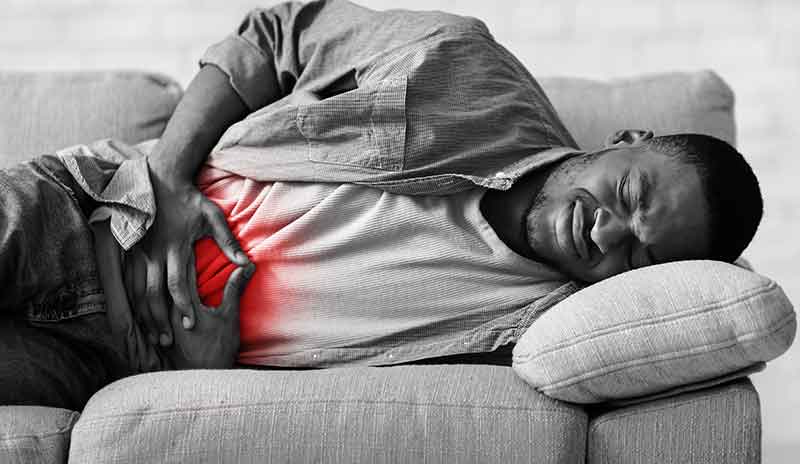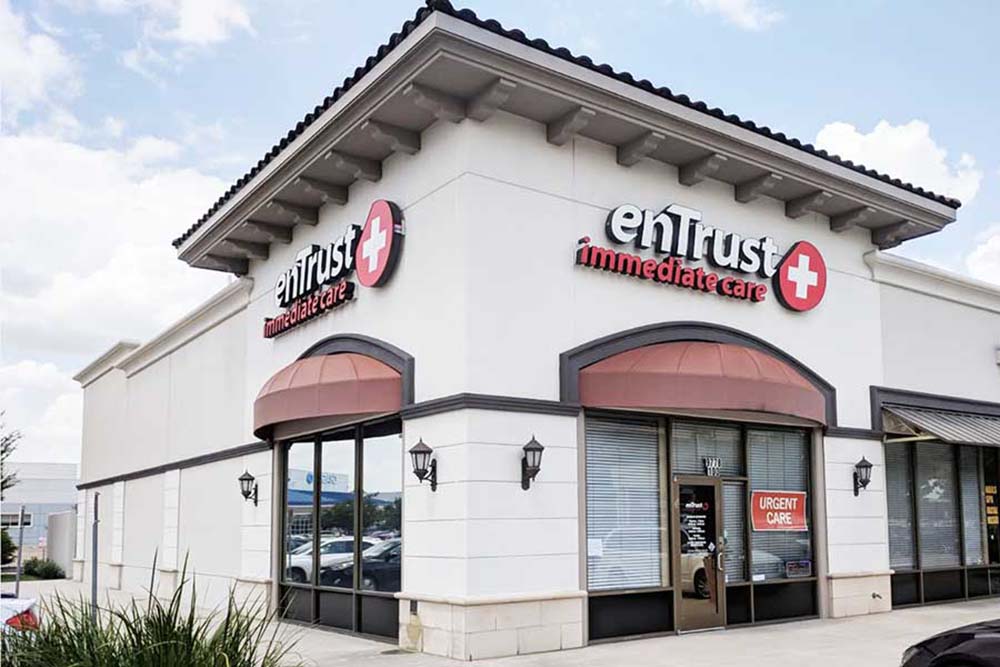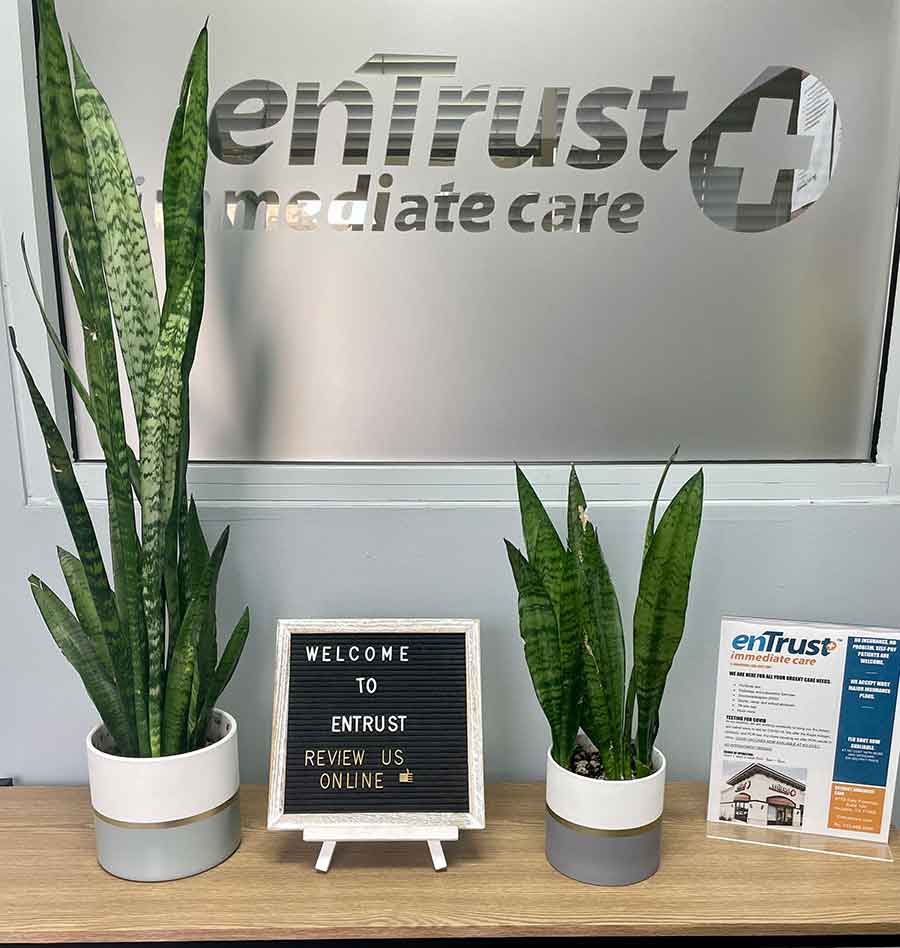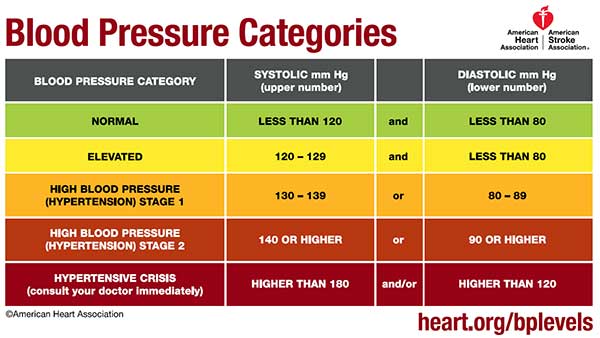What is Abdominal Pain?
Most of us can remember waking up at some point during the night in our lives with abdominal pain. Depending on your age, you may have referred to it as a stomach ache, a tummy ache, or belly pain.
No matter what you may have called it, the abdomen refers to the area between the chest (thorax) and the hip bones (pelvis) and contains a bunch of different organs.
Pain is the body’s way of telling us that something’s going on. Some reasons for abdominal pain are easy to figure out like when someone catches a stomach virus from a best friend. Other times it is very hard to figure it out and can be very serious.
Stomach pain can sometimes be tricky for even the best doctors to diagnose and often takes a lot of detective work to narrow down what could be behind your abdominal pain.
Types of Abdominal Pain
Types of abdominal pain are usually referred to as where the pain is experienced and how it feels. For example, it can be described as being generalized, localized, crampy, or colicky.
- Generalized Abdominal pain means that it is felt in more than half of your belly. This would be more common if you have a stomach virus that is causing nausea, vomiting and/or diarrhea, constipation, or gas.
- Localized Abdominal pain is found in one area of the belly and is more likely to be caused by one of the organs such as the appendix, the gallbladder, or stomach.
- Cramping is not serious most of the time. It is likely to be due to gas and bloating or occur before or during a woman’s period. It may be more worrisome if it occurs more often, lasts more than 24 hours, or occurs with a fever.
- Colicky pain comes in waves. It tends to start and end suddenly and is often severe. Kidney stones and gallstones are common causes of this type of belly pain.
Causes of Abdominal Pain
Here are some of the common causes of persistent or repeated abdominal pain, or tummy troubles:
Inflammatory bowel disease (IBD): Crohn’s disease or ulcerative colitis are long-term diseases that can be life-threatening if they remain untreated. They often cause cramping, colicky pain with bloody stools.
Period pain: Painful muscle cramps in women that are linked to the monthly period. This can include a condition called endometriosis.
Constipation: If you haven’t had a bowel movement (poop) for a while, it may be hard and difficult to go. This is another top reason for belly pain.
Heartburn (gastric reflux): If acid from the stomach gets up into the esophagus (the tube that connects the throat to the stomach), it can cause pain in the upper abdomen where it connects to the stomach.
Food intolerance or allergy: Some people have foods that are hard for them to digest. This is called food intolerance. One example is lactose intolerance which means someone has a tough time digesting lactose, a type of sugar found in milk and other dairy foods.
Food allergies can cause immune system reactions that can harm the body, and this can be more serious. Someone with a food allergy must always avoid that food. Another example is Celiac Disease when someone can’t digest gluten which is found in grains, including wheat, rye, spelt, and barley.
Stress: Many people have a “nervous stomach” when they are worried or stressed.
Migraine: Many doctors don’t realize that a common cause of abdominal pain especially in children can be linked to migraine so if a cause can’t be found, this may be something to explore.
Irritable Bowel Syndrome: Irritable bowel syndrome (IBS) is a problem that affects the large intestine. It can cause abdominal cramping and bloating. Some people with the disorder have constipation. Some have diarrhea. Others go back and forth between the two. Although IBS can cause a great deal of discomfort, it does not harm the intestines.
Other Common Causes of Abdominal Pain
Common causes of abdominal pain that may need to be treated, but are not usually dangerous are:
Stomach Bug: A stomach bug that can cause nausea, vomiting and/or diarrhea (sometimes referred to as the stomach flu) can leave you with a sore belly.
Bladder Infection: An infection in the bladder (the sac that holds your urine) can cause pain in the lower belly and will need antibiotics to treat.
Abdominal Muscle Strain: Abdominal muscle strain can refer to any tear, stretch, or rupture of the abdominal muscles. Abdominal strain can be caused by a sudden twisting or fast movement, intense exercise, lifting heavy objects, etc.
Hernia: Hernia is a bulging of an organ or tissue through an abnormal opening. Typically, a hernia involves the stomach or intestine. Symptoms include a bulge, swelling, or pain. In some cases, there are no symptoms. Treatment includes monitoring the condition. If needed, surgery can return the tissue to its normal location and close the opening.
Many other types of abdominal pain may or may not be linked to the organs that are in the abdomen and can be more serious:
Appendicitis: If the pain starts by your belly button and then moves to the lower right side of your belly, it might be appendicitis. Fever or vomiting, along with pain that gets worse and worse and a loss of appetite, also can be signs of appendicitis. The appendix needs to be removed by surgery.
Bleeding or Perforated Ulcer: An ulcer is like a big sore in the stomach that can bleed or even break open. The pain would be above the belly button or on the upper left side of the belly. Treatment depends on how bad the ulcer is.
Inflammation of the Gallbladder: Most of the time this is caused by stones, but sometimes the gallbladder isn’t working properly. It would need to be removed by surgery. Pain is in the upper right side of the belly and is worse after eating large, greasy meals.
Pancreatitis: The pancreas is located a little behind and below the stomach. It also can become inflamed. The pain would be in the left upper part of the abdomen that goes to the back. Treatment usually requires hospitalization, fluids, diet changes, but also depends on the cause.
Kidney Stones: Tiny stones can form in the kidneys but if they get into the tiny tubes that carry urine from the kidneys to the bladder, they can cause a lot of pain! Pain is usually sharp and severe and on and off, starts on the left or right side in the lower back, and works its way to the front (depending on the location of the stone). Most of the time the pain goes away once it drops into the bladder, but sometimes the stones need to be removed.
Diverticulitis: Small pockets can form on the inside of the intestines as people get older. Sometimes these pockets can get infected and cause pain. This requires antibiotics and sometimes surgery.
Bowel Obstruction: This can happen when there is something blocking the digestive system. People can’t pass gas or have a bowel movement. This can cause pain and cramping and a big swollen belly. Treatment includes avoiding solid foods, using pain and nausea medications, and close monitoring. Sometimes surgery may be needed.
Hernia: As mentioned above, a hernia can be dangerous if it becomes painful and hard. For example, if the intestine is caught in the abnormal opening in the abdominal muscles, it can cut off the blood supply. This requires immediate treatment at an urgent care center.
Ovarian Cyst: A solid or fluid-filled sac or pocket (cyst) within or on the surface of an ovary. Ovarian cysts usually disappear in a few months but can cause complications if they don’t.
Ectopic Pregnancy: A pregnancy in which the fertilized egg implants outside the uterus. The fertilized egg can’t survive outside the uterus. If left to grow, it may damage nearby organs and cause life-threatening loss of blood.
Cancer: Cancer of the stomach, pancreas, liver, bile duct, gallbladder, bladder, colon, or immune cells can often be non-painful at first, but cause pain in the advanced stages.
Bowel Infarction: A condition in which there is inadequate blood flow to the small intestine. This condition may occur as a result of narrowed blood vessels or from a blood clot.
Abdominal Aortic Aneurysm: An enlargement of the aorta, the main blood vessel that delivers blood to the body, at the level of the abdomen. An abdominal aortic aneurysm often grows slowly, without symptoms. As it grows, some people may notice a pulsating feeling near the navel. Pain in the back, belly, or side may be signs of impending rupture.
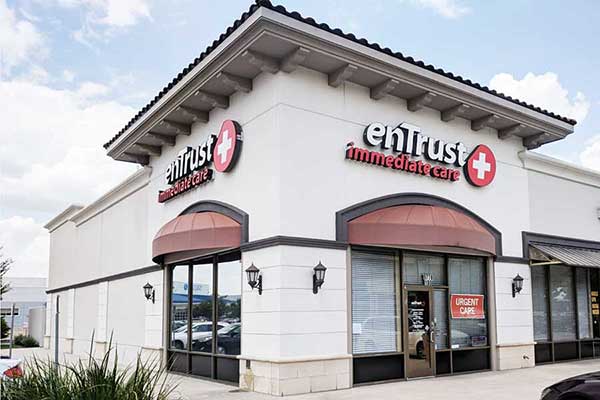
When to Go to the Urgent Care Center for Abdominal Pain
Sometimes, it is a bit tricky to determine when to visit an emergency care center such as enTrust Immediate Care for belly pain, but if you have severe pain that isn’t normal for you, seek help. It’s better to take the “better safe than sorry” approach than the “wait and see” approach.
In fact, abdominal pain is the most common complaint that is seen in the emergency room, walk-in clinic, or urgent care center.
See Also: Hypertension and High Blood Pressure: Everything You Need to Know.
There are many conditions that may or may not require emergency surgery to treat, which is why it is important to be able to quickly identify the cause. Acute abdomen is a general term used to describe sudden and severe belly pain.
When to Seek Immediate Care for Abdominal Pain
There are certain situations that warrant seeking immediate medical treatment so go to the nearest urgent care center if:
- You are pregnant.
- Your pain started within a week of having abdominal surgery or a gastrointestinal procedure (even a diagnostic endoscopy).
- You have ever had a gastric bypass, a colostomy, or a bowel resection.
- Your pain started shortly after you experienced severe abdominal trauma.
- Your abdomen appears bruised or is rapidly expanding in size.
Your stomach pain may be mild in the beginning, and then you may develop associated symptoms after a few hours. You should get help immediately if you develop any of the following symptoms along with your stomach pain:
- Abdominal pain that lasts more than six hours or continues to worsen
- Severe abdominal pain
- Pain that worsens when you try to move around
- Pain that starts all over, but settles into one area, especially the right lower abdomen
- Pain that wakes you up at night
- Pain that you think is in your chest
- Pain that seems to come from a man’s testicles
- Abdomen is extremely hard and bloated
- Abdominal tenderness when it is touched
- Coughing up or vomiting blood
- Persistent vomiting
- Bloody diarrhea
- Chest pain or pressure
- Difficulty breathing
- Dizziness
- Fainting
- Inability to have a bowel movement accompanied by vomiting
How Is Abdominal Pain Diagnosed?
The seriousness of abdominal pain depends on the cause, so the most important thing is to identify the cause.
Your healthcare provider will need to ask you lots of questions about your overall health history, symptom history, any recent injuries, whether you might be pregnant, and more.
Your provider will do a physical exam and maybe get some tests. You can be prepared by telling the provider:
- When the abdominal pain started
- Where the pain is located
- How intense the abdominal pain is
- Whether the pain is dull, stabbing, burning, or cramping
- Whether the abdominal pain comes and goes, or you have it all the time
- When you experience or notice the pain most
- Whether the pain radiates outward to other areas of your body
- How long you’ve had the pain
- Whether any activities or actions seem to make the pain worse or better
- Any other symptoms such as nausea, vomiting, diarrhea, tiredness, etc.
If your healthcare provider suspects a serious health condition that may need treatment, any of the following tests may be used to help diagnose the cause of your abdominal pain:
- Blood, urine, or stool tests that include checking for viral, bacterial, and parasitic infections
- Imaging tests such as an X-ray of the abdomen, an ultrasound of the abdomen, a computerized tomography (CT) scan of the abdomen, or a magnetic resonance imaging (MRI) are used to view organs, tissues, and other structures in the abdomen in detail
- Angiography to check for a blood clot or a blockage
- ECG especially in elderly patients with upper abdominal pain and in all unstable patients.
Other tests may include:
- Colonoscopy (to look inside the colon and intestines)
- Endoscopy (to detect inflammation and abnormalities in the esophagus and stomach)
- Upper GI (a special X-ray test that uses contrast dye to check for the presence of growths, ulcers, inflammation, blockages, and other abnormalities in the stomach)

Abdominal Pain Treatment
Because some cases of abdominal pain are life-threatening, finding the cause quickly and accurately is very important.
After making sure your airway is open, your breathing is stable, your circulation is not affected, and checking your vital signs, the main focus of the healthcare team in the urgent care center is to make sure you are comfortable while tests are being obtained to determine the cause.
- An intravenous (IV) catheter may be inserted to start giving fluids through a bag that drips down through a tube into the arm, especially if there has been a lot of vomiting and/or diarrhea.
- A Foley catheter (a tube that goes into the bladder) may be helpful as a guide for how much fluid to give in patients who are sicker or may need surgery.
- Pain will be managed with pain medicines that are given by mouth, by injection, or through the IV
- Medicine may be given to calm down nausea and vomiting.
- No food or fluids will be given just in case surgery may be needed.
- A heart monitor will monitor your heart rhythm and rate.
- A pulse oximeter on the finger will monitor your oxygen level and oxygen can be given through the nose if needed.
- A nasogastric (through the nose into the stomach) tube will be placed in patients in whom bowel obstruction is suspected, or if bleeding in the upper intestine is suspected.
- Other measures such as positioning, back rubs, heating pads may be used if appropriate.
- People who are not stable with things such as low blood pressure, high heart rate, or severe pain are sometimes transferred to a hospital intensive care unit for close monitoring.
- A surgeon will be consulted immediately in cases such as a ruptured aortic aneurysm, bowel infarction, appendicitis, or any instance that surgery may be necessary.
- A gastroenterologist (specialist that treats disorders of the stomach and intestines) may need to be consulted in patients with bleeding in their stool.
Is Abdominal Pain Always Serious?
It is important to know that most of the time, abdominal pain does not signify a serious medical problem. How bad your pain is doesn’t always reflect the seriousness of the problem causing your pain. And some life-threatening conditions, such as colon cancer or a very early case of appendicitis, may cause only mild pain, or no pain at all.
If you are struggling with stomach pain that makes you wonder if you should seek medical attention, then you should get it checked out immediately by an experienced enTrust Immediate Care physician.
—————————————————————————-
Dr. Kanti Bansal, MD is a founding member of enTrust Immediate Care and an Emergency Medicine Physician in Houston, TX. He has over 20 years of experience in the emergency medical field. Before becoming an attending physician, he served as Chief Resident of his emergency medicine residency at Metropolitan Hospital Center in Manhattan, New York. He holds a Bachelor of Science degree in Biology and a minor in Computer Science from Brandeis University in Massachusetts. Dr. Bansal worked as an emergency room physician for several years at many hospitals in the Greater Houston Metro area, including Memorial Hermann Southwest, Memorial Hermann Southeast, Memorial Hermann Memorial City, St. Catherine’s Hospital in Katy, Texas, as well as St. Mary’s Hospital in Beaumont, Texas.


